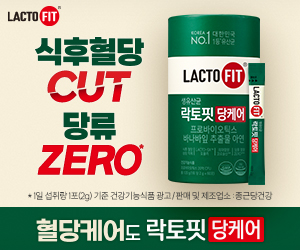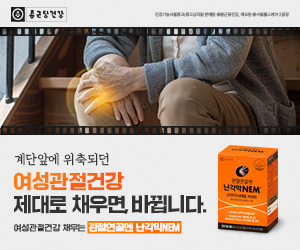in People with Haemophilia A
-- This material is intended for global medical media only.
-- For journalistic assessment and preparation before publication.
-- Poster #P024
[편집자 주] 본고는 자료 제공사에서 제공한 것으로, 연합뉴스는 내용에 대해 어떠한 편집도 하지 않았음을 밝혀 드립니다.
(PARIS, February 1, 2017 PRNewswire=연합뉴스) Patient preference data presented today at the 10th Annual Congress of the European Association for Haemophilia and Allied Disorders (EAHAD) demonstrated the importance of flexible storage on daily use of FVIII treatments in people with haemophilia A. The survey of 200 people found that those who did not store their treatment in the refrigerator felt significantly more satisfied with their treatment, less restricted in daily life when playing sports or travelling, and travelled more often (p<0.01).1<br>
The respondents fell into two groups; those who stored their FVIII treatment in the refrigerator (85%) and those who stored their FVIII treatment outside of the refrigerator at room temperature (15%). Those who stored their treatment at room temperature travelled significantly more often (16 times per year vs 9 times per year; p<0.01), and felt relaxed using FVIII treatment in their daily lives. Only 19% of this group felt that storing, preparing and mixing FVIII is disruptive to the normal course of the day vs. 35% who store in the fridge p<0.05.2<br>
Of the respondents who stored their FVIII treatment in the refrigerator, 88% believed it should be stored in the refrigerator at all times and 74% waited an average of 10 minutes for their treatment to reach room temperature before administering it, with 62% stating that the injection with cold FVIII was more unpleasant.2
"People living with haemophilia A can feel restricted in their daily life based on the misconception that all FVIII treatments must be stored in the refrigerator," said Mariasanta Napolitano, Regional Centre for Thrombosis and Haemostasis, University of Palermo, Italy. "It is important that healthcare professionals communicate to patients that some FVIII products can be used portably and at room temperature, to enable them to go about their daily lives as actively as they wish."
When asked to rate the relative impact of attributes on product choice, assuming efficacy and safety remained the same, respondents rated the origin of FVIII (plasma derived vs. recombinant) as having the highest impact and room temperature as the second highest impact; yet only a minority are aware that FVIII can be stored without refrigeration.2
About the survey design
A survey of 200 adults with haemophilia A in seven countries was conducted: face-to-face with 90 people in the EU (France, Italy, UK) and 90 people in Latin America (Argentina, Brazil, Mexico), and online with 20 people in Japan. The questionnaire covered current use of FVIII products, patient satisfaction and restrictions in daily life using verbalised rating scales (e.g., 'not restricted at all / somewhat restricted / restricted / strongly restricted'). In addition, preferences were assessed through exercises whereby participants chose one out of three products in 16 different choice tasks.1
About haemophilia
Haemophilia is a chronic, inherited bleeding disorder that primarily affects males. People born with haemophilia have little or no clotting factor, which is a protein needed for normal blood clotting. The two main types of haemophilia are A and B; people living with haemophilia A lack clotting factor VIII and people living with haemophilia B lack clotting factor IX. Haemophilia A is about four times as common as haemophilia B.3
Haemophilia can be mild, moderate or severe, depending on the amount of clotting factor in the blood.3 Approximately 400,000 people are estimated to live with haemophilia globally.4
About Novo Nordisk
Novo Nordisk is a global healthcare company with more than 90 years of innovation and leadership in diabetes care. This heritage has given us experience and capabilities that also enable us to help people defeat other serious chronic conditions: haemophilia, growth disorders and obesity. Headquartered in Denmark, Novo Nordisk employs approximately 42,100 people in 75 countries and markets its products in more than 180 countries. For more information, visit novonordisk.com, Facebook [http://www.facebook.com/novonordisk ], Twitter [http://www.twitter.com/novonordisk ], LinkedIn [http://www.linkedin.com/company/novo-nordisk ], YouTube [http://www.youtube.com/novonordisk ]
Further information
Media:
Katrine Sperling, +45-4442-6718, krsp@novonordisk.com
Asa Josefsson, +45-3079-7708, aajf@novonordisk.com
Investors:
Peter Hugreffe Ankersen, +45-3075-9085, phak@novonordisk.com
Melanie Raouzeos, +45-3075-3479, mrz@novonordisk.com
Hanna Ogren, +45-3079-8519, haoe@novonordisk.com
Anders Mikkelsen, +45-3079-4461, armk@novonordisk.com
Kasper Veje (US), +1-609-235-8567, kpvj@novonordisk.com
References
1. Mariasanta Napolitano et al., Patient Preferences in Haemophilia A Treatment: The Importance of Storage Flexibility in Daily Life, abstract. 10th Annual Congress of the European Association for Haemophilia and Allied Disorders (EAHAD), 1-3 February 2017.
2. Mariasanta Napolitano et al., Patient Preferences in Haemophilia A Treatment: The Importance of Storage Flexibility in Daily Life, poster #P024. 10th Annual Congress of the European Association for Haemophilia and Allied Disorders (EAHAD), presented 1 February 2017.
3. National Heart Lung and Blood Institute. What is hemophilia? https://www.nhlbi.nih.gov/health/health-topics/topics/hemophilia (last accessed January 2017).
4. National Hemophilia Foundation. Fast Facts. http://www.hemophilia.org/About-Us/Fast-Facts (last accessed January 2017).
Source: Novo Nordisk
(끝)
<저작권자(c) 연합뉴스, 무단 전재-재배포 금지>
관련뉴스















